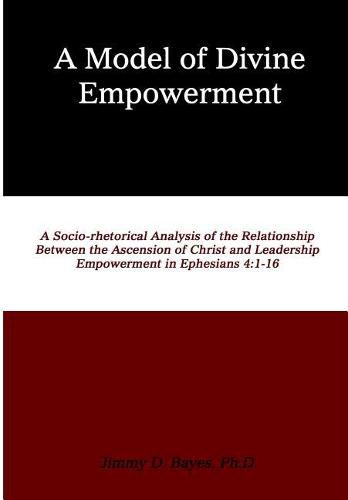Readings Newsletter
Become a Readings Member to make your shopping experience even easier.
Sign in or sign up for free!
You’re not far away from qualifying for FREE standard shipping within Australia
You’ve qualified for FREE standard shipping within Australia
The cart is loading…






This study found that leaders are divinely empowered and authorized to participate with God mediating the relation- ships between God and man and among men. This study addresses the divine aspect of leadership by examining the relationship between God and leadership roles. Ephesians 4:1-16 was analyzed because Paul associates deity- the ascended Christ- with leadership functions. This research found that Christ represents the Trinity in exalted form, giving gifts and authority to the church for the purpose of building maturity and unity. Socio-rhetorical analysis of the text found five components that compromise a model of divine empowerment: CALLING, MEMBERSHIP, PARTICIPATION, AUTHORITY, & MEDIATING ROLES.
$9.00 standard shipping within Australia
FREE standard shipping within Australia for orders over $100.00
Express & International shipping calculated at checkout
This study found that leaders are divinely empowered and authorized to participate with God mediating the relation- ships between God and man and among men. This study addresses the divine aspect of leadership by examining the relationship between God and leadership roles. Ephesians 4:1-16 was analyzed because Paul associates deity- the ascended Christ- with leadership functions. This research found that Christ represents the Trinity in exalted form, giving gifts and authority to the church for the purpose of building maturity and unity. Socio-rhetorical analysis of the text found five components that compromise a model of divine empowerment: CALLING, MEMBERSHIP, PARTICIPATION, AUTHORITY, & MEDIATING ROLES.